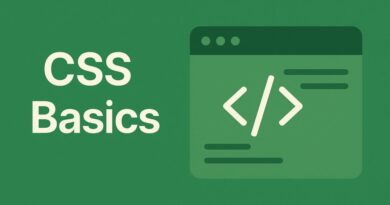Demystifying Composer Autoloading for Peak Performance
Streamline Your PHP: Demystifying Composer Autoloading for Peak Performance
In the fast-paced world of PHP development, efficiency is king. We’re constantly seeking ways to write cleaner, more maintainable code, and crucially, to manage the intricate web of dependencies our projects rely on. If you’ve ever found yourself manually including file after file at the top of your scripts, or battling with require_once statements scattered throughout your codebase, then buckle up! Composer’s autoloading feature is about to become your new best friend.
This powerful mechanism is a game-changer for modern PHP development, dramatically simplifying how your application finds and uses the classes it needs. Forget the days of tedious manual includes; with Composer, it’s largely automated, leading to faster development cycles and improved code readability.
The Problem: Manual Includes – A Developer’s Headache
Before we dive into the magic of autoloading, let’s briefly revisit the pain points it solves. Imagine a sizable PHP project with dozens, even hundreds, of custom classes, third-party libraries, and framework components. Without autoloading, every time you want to use a class, you’d have to explicitly include the file where it’s defined:
PHP
// Old way: Lots of manual includes
require_once 'path/to/MyClass.php';
require_once 'path/to/AnotherClass.php';
require_once 'path/to/Utility/Helper.php';
$myObject = new MyClass();
This approach quickly becomes unmanageable. It’s:
- Error-prone: Miss one include, and your application crashes.
- Time-consuming: Constantly tracking file paths is a waste of precious development time.
- Hard to refactor: Moving files around means updating every single
require_oncestatement. - Inefficient: Even if a class isn’t used, its file is still loaded, potentially slowing down your application.
The Solution: Composer Autoloading – The Smart Way to Load Classes
Enter Composer, the de facto PHP dependency manager. While its primary role is managing external libraries, its autoloading capabilities are equally transformative for PHP project structure and code organization.
At its core, autoloading allows PHP to automatically load class files only when they are needed. Instead of you telling PHP where to find a class, you tell Composer how to find classes based on certain conventions. When your code tries to instantiate a class that hasn’t been loaded yet, PHP’s autoloader kicks in, consults Composer’s generated map, and loads the correct file for you. It’s lazy loading at its finest!
How Does Composer Autoloading Work?
Composer generates a special file, vendor/autoload.php, which acts as the central hub for all your autoloading needs. When you run composer install or composer update, Composer scans your composer.json file for autoloader definitions and builds this highly optimized map.
There are two primary autoloading standards Composer supports, both offering different benefits for PHP package management:
- PSR-4 Autoloading (Recommended for Modern Projects): PSR-4 is the modern standard and highly recommended for its simplicity and direct mapping. It maps a namespace prefix to a base directory.Example
composer.jsonentry:JSON{ "autoload": { "psr-4": { "MyApp\\": "src/" } } }In this example, any class within theMyAppnamespace (e.g.,MyApp\Controllers\UserController) will be looked for in thesrc/directory. So,MyApp\Controllers\UserControllerwould map tosrc/Controllers/UserController.php. It’s incredibly intuitive and perfect for your own application’s classes. This promotes clean code architecture and namespaces best practices. - PSR-0 Autoloading (Legacy, but Still Supported): PSR-0 is an older standard, similar to PSR-4 but with slightly different conventions regarding underscores in class names and directory mapping. While still supported, PSR-4 is generally preferred for new development.
Beyond PSR-4: Other Autoloading Types
Composer also offers other autoloading mechanisms for specific scenarios:
filesAutoloading: For simple scripts or global functions that don’t belong to a class and you want them to be loaded every time.JSON{ "autoload": { "files": ["helpers/functions.php"] } }classmapAutoloading: For projects with classes that don’t follow PSR-4/PSR-0 conventions, or for performance-critical applications where explicit mapping is desired. Composer will scan the specified directories and create a static map of class names to file paths. This is great for legacy code integration.JSON{ "autoload": { "classmap": ["lib/", "old-classes/"] } }
Putting it All Together: The vendor/autoload.php Magic
Once you’ve defined your autoload rules in composer.json and run composer dump-autoload (or composer install/update), Composer generates the vendor/autoload.php file.
To enable autoloading in your application, you simply include this single file at the very beginning of your main script (e.g., index.php):
PHP
// index.php
require __DIR__ . '/vendor/autoload.php';
use MyApp\Controllers\UserController;
use MyApp\Models\Product;
$userController = new UserController();
$product = new Product();
// ... and so on! No more individual requires!
That’s it! From this point onwards, whenever you new up a class or refer to a namespaced function, Composer’s autoloader will magically locate and load the correct file for you. This results in faster application startup because files are only loaded when they’re actually needed.
Benefits of Composer Autoloading:
- Automatic Class Loading: Eliminates manual
requirestatements, reducing boilerplate code. - Improved Code Organization: Encourages the use of namespaces and a logical PHP project directory structure, leading to more maintainable and scalable applications.
- Simplified Dependency Management: Works seamlessly with Composer’s dependency resolution, ensuring all required libraries are correctly loaded.
- Enhanced Performance: Classes are loaded on demand (lazy loading), improving application startup times and reducing memory consumption.
- Easier Refactoring: Moving classes or files around is less of a headache as Composer handles the mapping.
- Better Developer Experience: Reduces cognitive load and allows developers to focus on writing application logic rather than file paths.
Conclusion: Embrace Autoloading for Superior PHP Development
Composer’s autoloading is not just a convenience; it’s a fundamental aspect of modern PHP development best practices. By leveraging this powerful feature, you’ll write cleaner, more efficient, and more maintainable code. So, if you’re not already fully utilizing Composer’s autoloading capabilities, now is the time to embrace it and unlock a new level of productivity and professionalism in your PHP development workflow.
Start defining those psr-4 rules, dump your autoloader, and experience the unparalleled simplicity and power of automated class loading. Your future self (and your teammates) will thank you!




